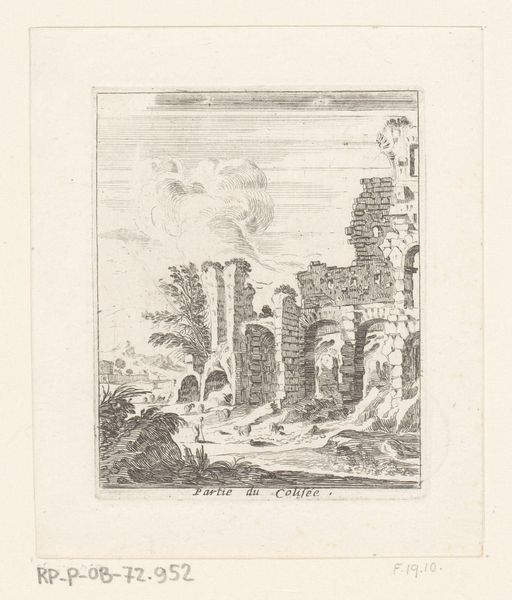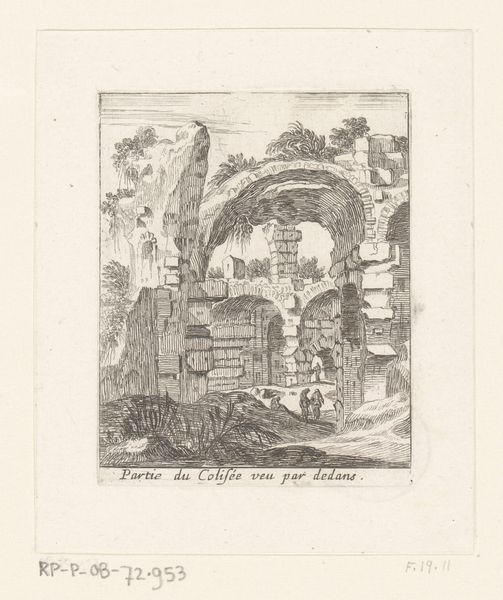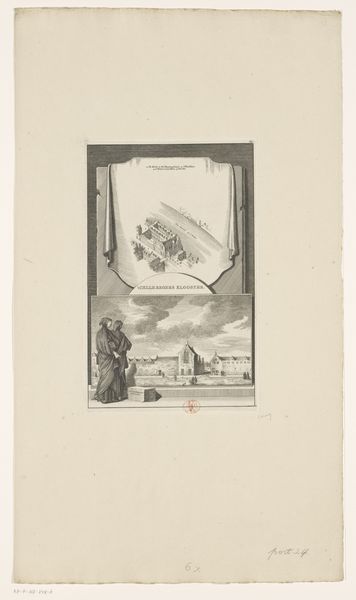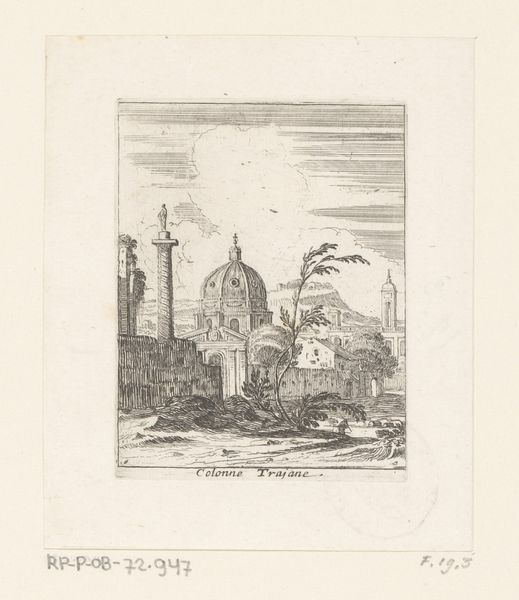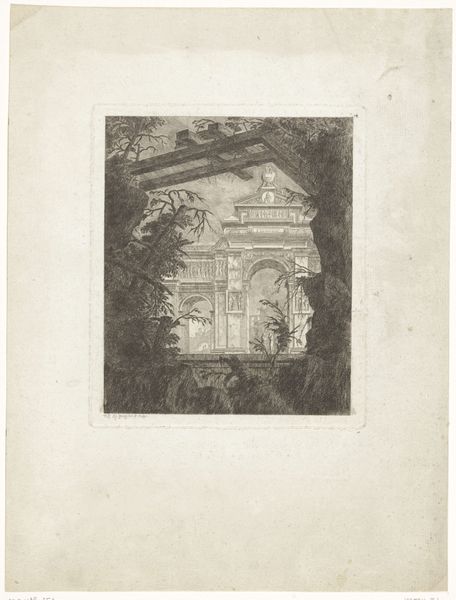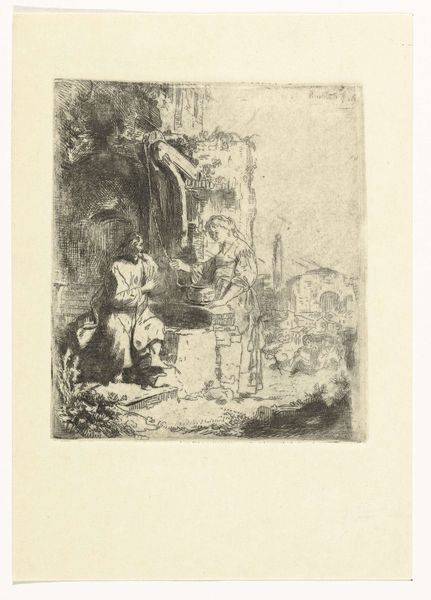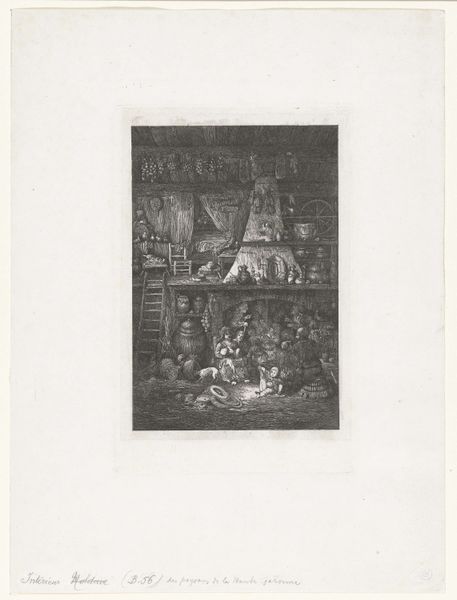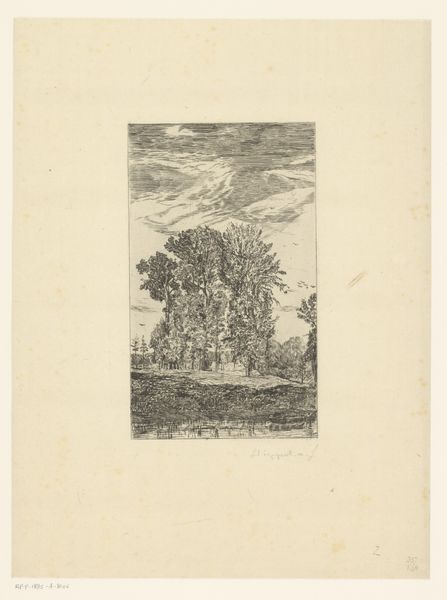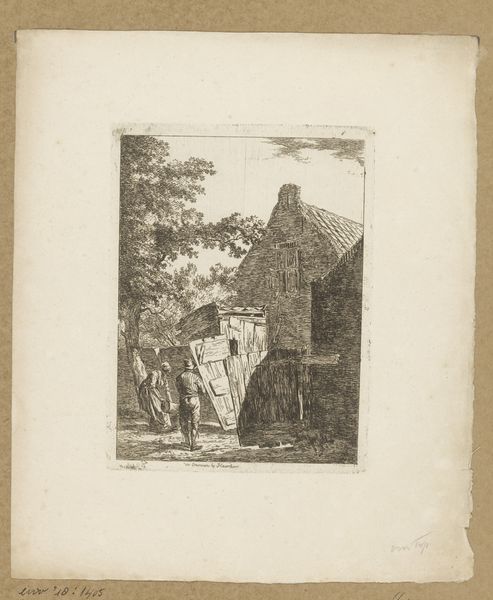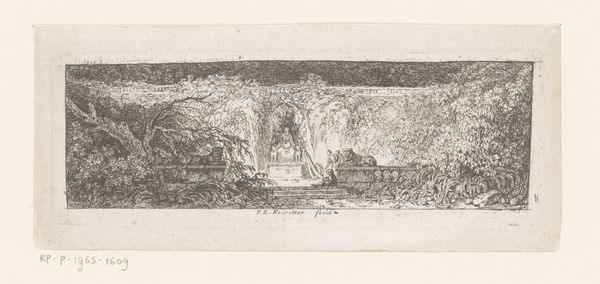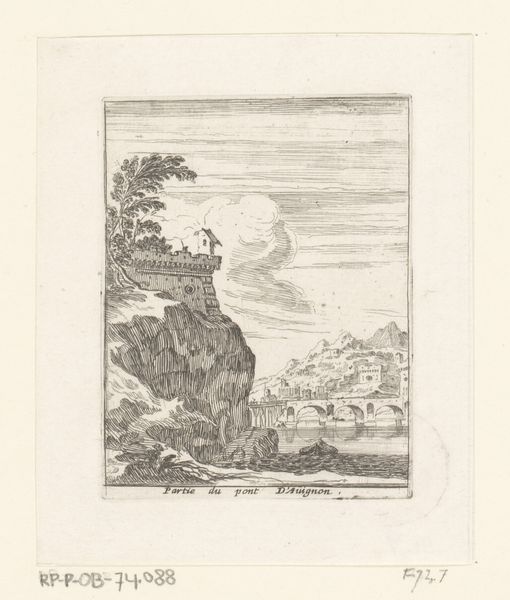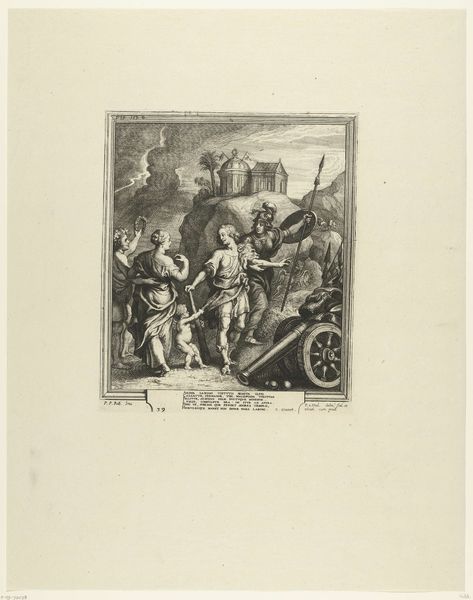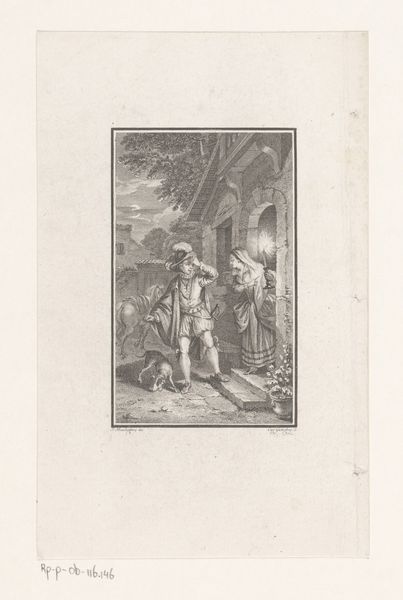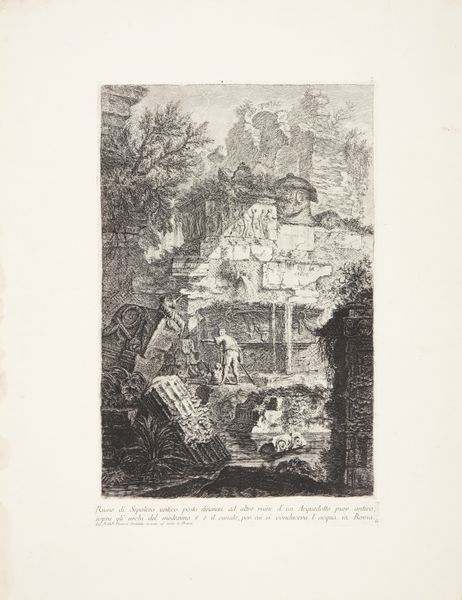
etching, engraving
#
baroque
#
etching
#
old engraving style
#
landscape
#
classical-realism
#
history-painting
#
engraving
Dimensions: height 80 mm, width 65 mm
Copyright: Rijks Museum: Open Domain
Israel Silvestre created this print of a classical tomb sometime in the 17th century, using the etching technique. This method involves covering a metal plate with a waxy ground, scratching an image into it with a needle, and then bathing the plate in acid. The acid bites into the exposed metal, creating lines that hold ink. The real skill is controlling the depth of the lines. See how Silvestre has varied the tones, creating a sense of depth and atmosphere? This was achieved through careful timing and multiple acid baths. The printmaking process also allowed for the easy reproduction of images, playing a crucial role in disseminating visual information. Prints like this one fueled the era’s fascination with classical antiquity, making it accessible to a wider audience. It's a reminder that even seemingly simple images are the result of skilled labor, and can have a big impact on society.
Comments
No comments
Be the first to comment and join the conversation on the ultimate creative platform.
